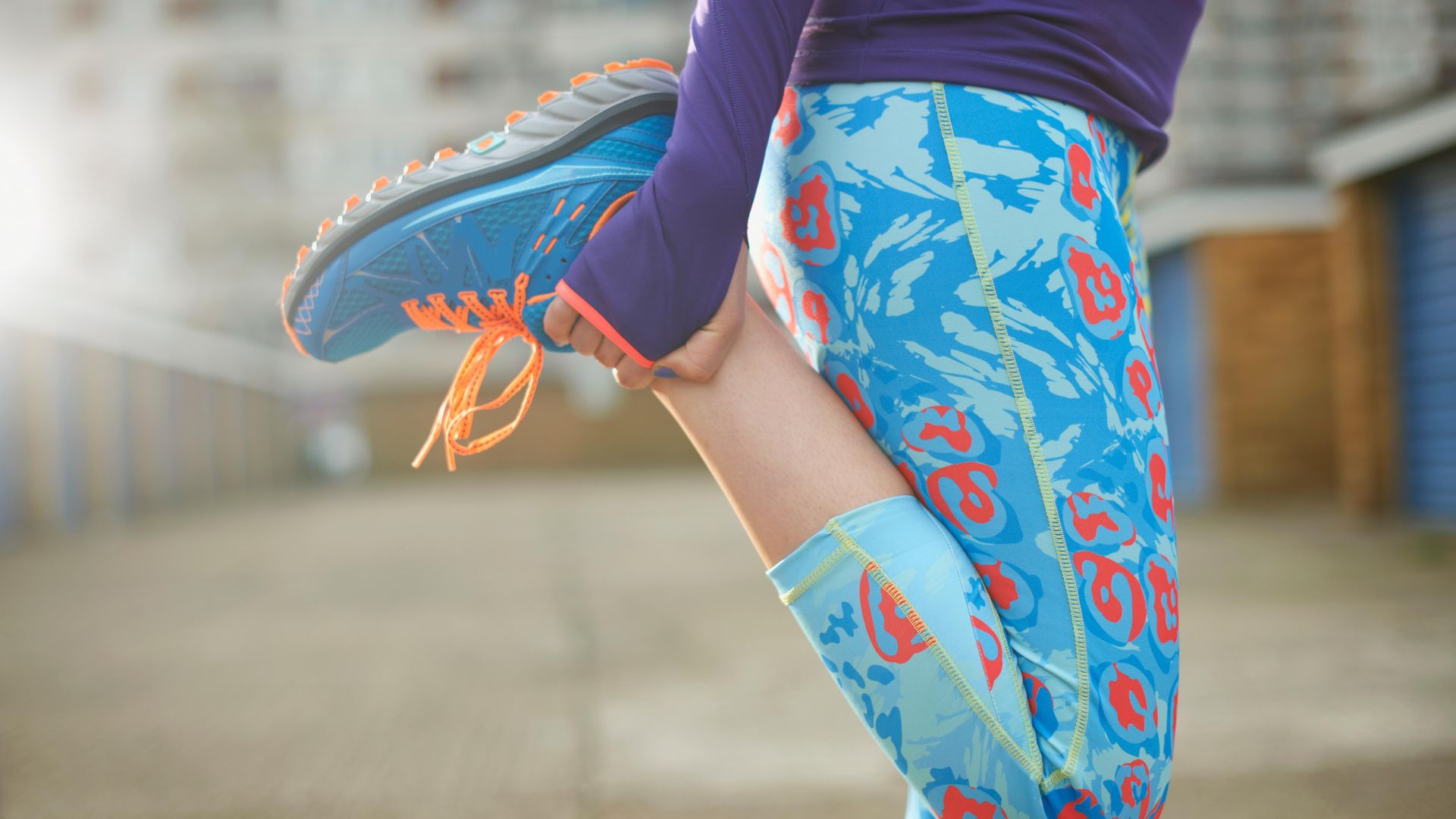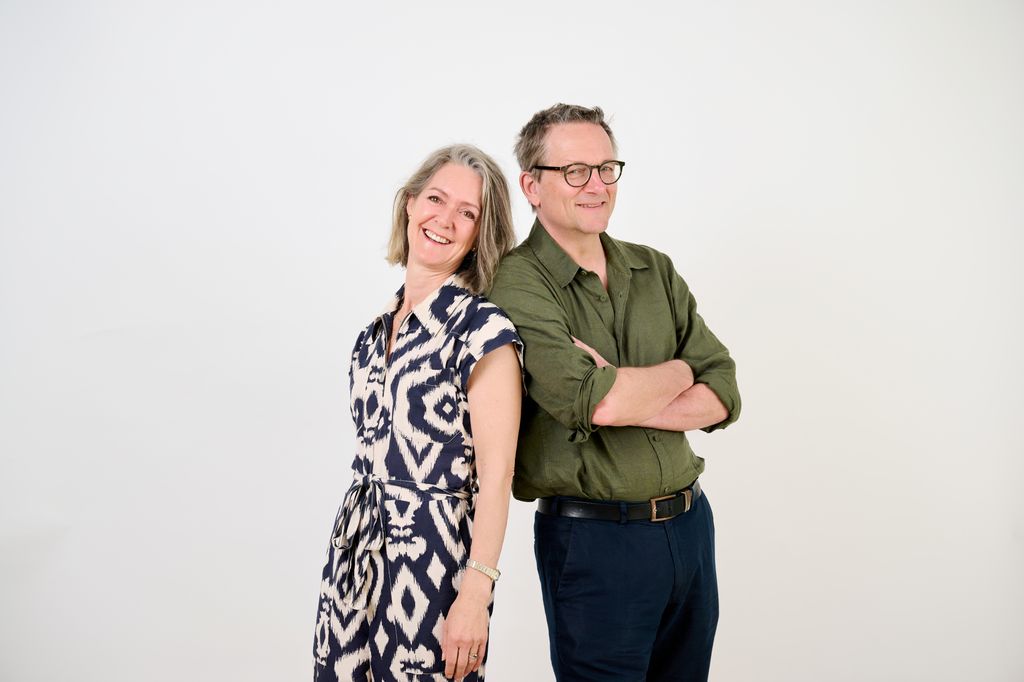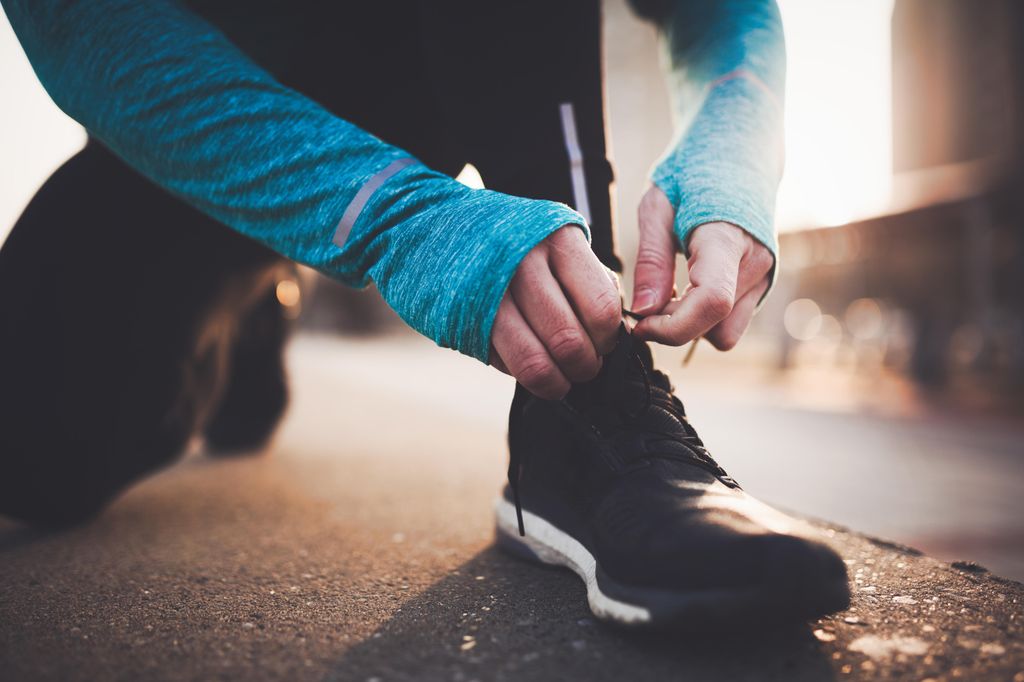January has arrived and, with it, an opportunity to start afresh. Whether you want to improve your fitness, better your sleep pattern, or simply focus on your general well-being, the turn of the new year is a great place to start. However, there is an abundance of information out there, a lot of it unhelpful, particularly when it comes to the topic of losing weight.
Short-term fixes, fad diets, and myriad buzzwords floating about online can be overwhelming when you're starting a health journey. But if safe, effective weight loss and improving overall physical and mental health is something you are wanting to prioritise not only in January but beyond, then there are a few things worth knowing.
Why exercise isn't the answer to weight loss
Dr Michael Mosley, an advocate for and writer of The Fast 800 Diet, spoke to HELLO! about the biggest myths around weight loss and why exercising alone isn't the be-all or end-all. Without oversimplifying it, the former medical professional-turned-broadcaster, also known for writing The Fast Diet about the 5:2 intermittent fasting regime, explains that calorie deficit is still an effective way to lose weight. So, incorporating a low-calorie diet, such as The Fast 800, in conjunction with a healthy lifestyle is the way to achieve results.
"Broadly speaking, it comes down to calories and it's mainly the calories you eat. Because the amount of calories you expend through exercise is not that much and people tend to eat more to compensate which is why exercise is not a great way of losing weight [in the first place]."
Michael, who created The Fast 800 programme along with his wife, Dr Clare Bailey, continued: "But it is a great way of keeping the weight off. It's good for all sorts of reasons; it's good for your mental health. But it's a pretty terrible way of actually losing weight. And so that's one of the things I say to people getting down the gym in January in order to lose weight: you're probably going to fail and you're going to feel miserable and you're going to give up. You need to go in with other objectives. So, you're going there because you want to build your muscle, you're going there because you want to boost your mood and all those things. But the weight loss is unlikely."
If it sounds surprising, you're not alone. Michael adds: "One of the things that people are surprised by is that you assume that if you exercise, you increase your metabolic rate. But actually, when they do long-term studies where they measure your metabolic rate accurately, they find what your body does is take back quite a lot of the calories that you burn.
"So you burn more calories when you're running but across the next 24 hours, your body will actually slow down and try and recover those calories. But half the calories you burn, your body will kick back. So again, the amount of calories you're burning is vastly less than you imagine."
Why does fasting work?
As Michael reiterates, the benefits of exercise are not to be ignored. Keeping up an active lifestyle has enormous impacts on physical and mental health for the better. But if weight loss is the goal, what is the answer? This is where time-restricted eating and intermittent fasting comes in.
Studies have found that broadly speaking, incorporating fasting and time-restricted eating can aid with weight loss but not only that, it can reduce chances of developing chronic diseases such as diabetes and heart disease.
Explaining The Fast 800 in more detail, Michael told HELLO!: "I recommend people aim for something more like 800 to 900 calories because that seems to be more sustainable. That's also where most of the research has gone. I also think it can be better if you do the fasting days back-to-back because one of the benefits of doing the calorie restriction is, it tips you into something called ketosis where you start to burn more of your fat rather than your sugar levels.
"[In The Fast 800] I actually suggest maybe you want to start by doing calorie restricting seven days a week and doing that for rapid weight loss and then switching back to a 5:2. I would also recommend more than ever that you also try and switch to a broadly Mediterranean style diet. One which has plenty of oily fish nuts, legumes, veg. Plus, more recently, fermented foods. We know that fermented foods are good for you. Sauerkraut, kimchi, even things like full-fat yogurt.
"In the original book, I didn't write so much about it. But since then, there's been a huge amount of research showing the health benefits of that."
Find out more about The Fast 800 programme.











